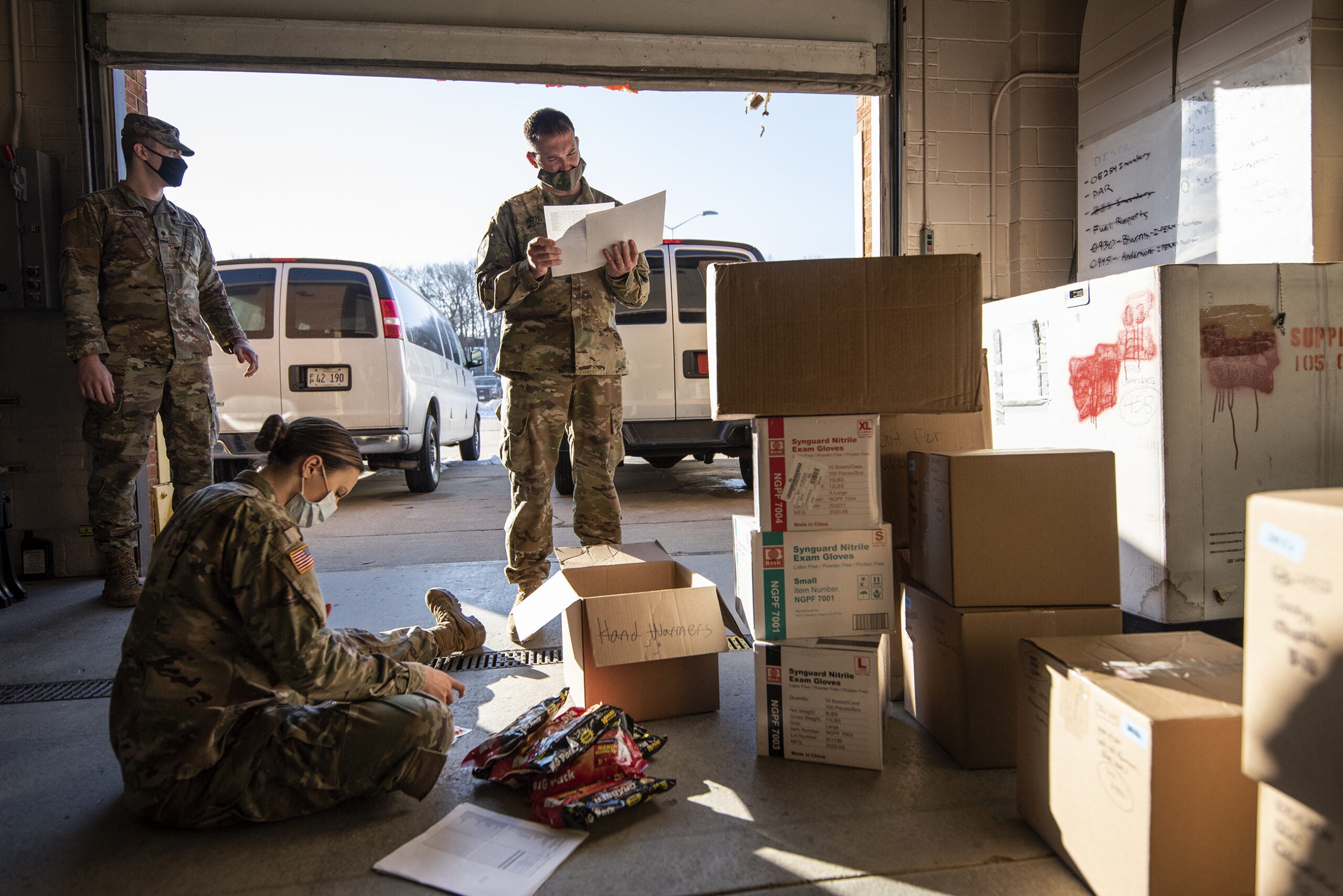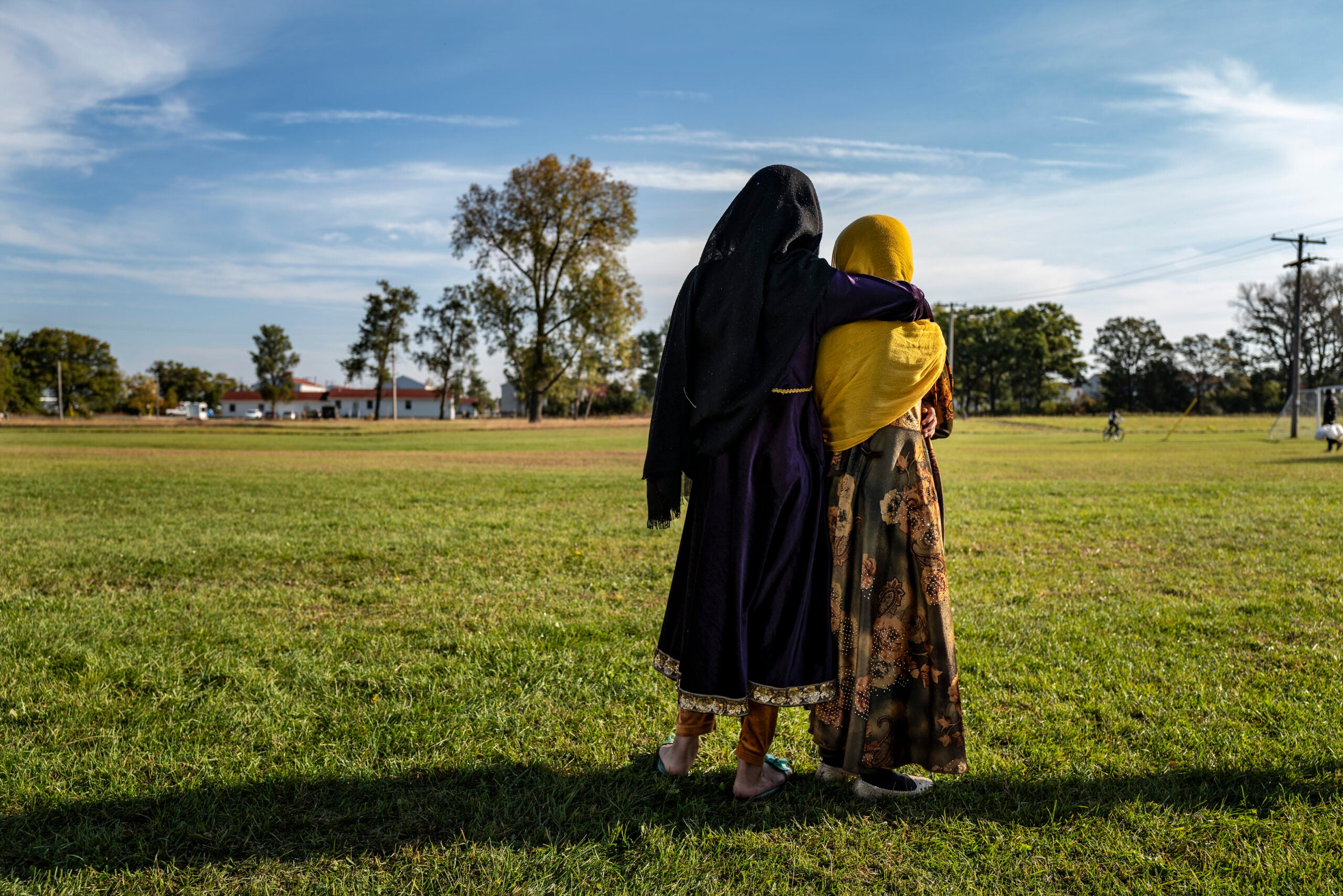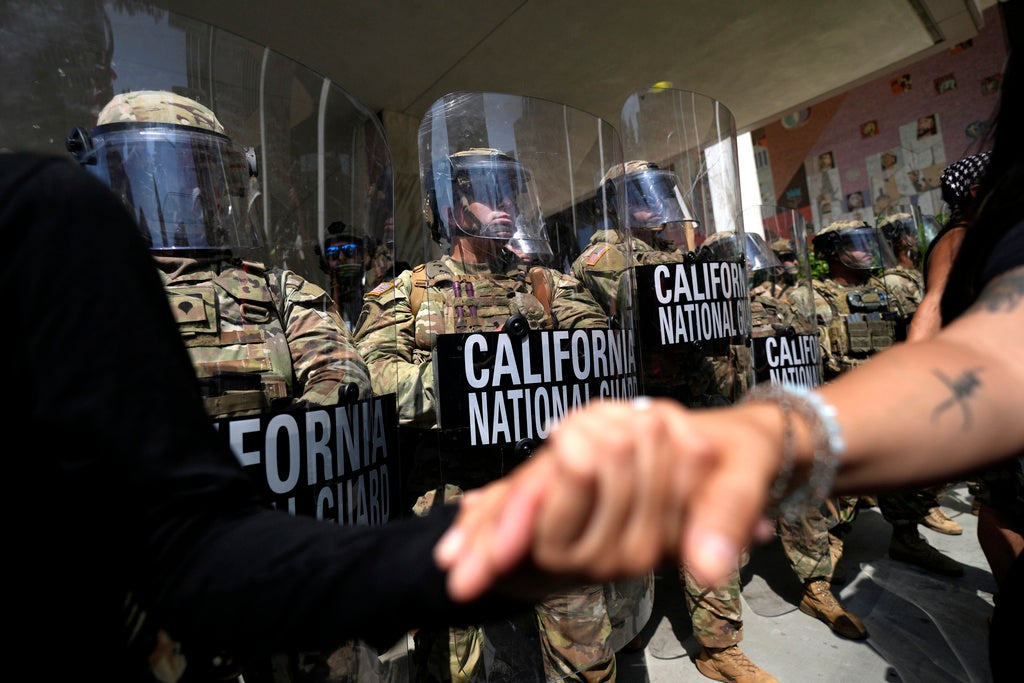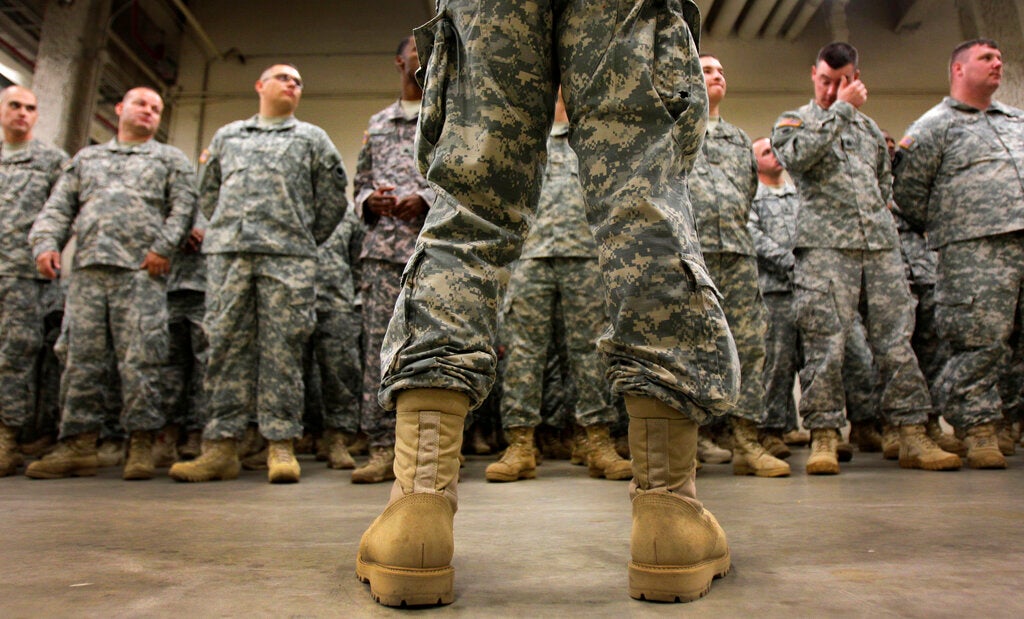Recruitments for the Wisconsin National Guard are down nearly 50 percent from the organization’s goal, and have fallen below already-strained 2022 levels.
Lt. Col. Shannon Hellenbrand told Wisconsin Public Radio’s “The Morning Show” that the Guard is struggling to meet its recruiting goals. The Guard has about 6,500 soldiers in the state, with unit armories in 70 communities.
In 2022, the Guard had a goal of enlisting 950 new soldiers. It enlisted only 577. Its goal for 2023 is 1,064 new soldiers. At the current pace it will miss that goal by about 50 percent, according to data Hellenbrand provided.
News with a little more humanity
WPR’s “Wisconsin Today” newsletter keeps you connected to the state you love without feeling overwhelmed. No paywall. No agenda. No corporate filter.
The trend is not unique to Wisconsin. Nationally, the U.S. Army fell short of its 2022 recruitment goals by about 25 percent, or 15,000 soldiers. Hellenbrand said the Guard limits recruits by age, physical fitness and “moral and legal standards,” all of which can be intimidating for some potential recruits.
“We have tough training requirements that are both physical and mental,” Hellenbrand said. “We also have really rigorous enlistment standards.”
And of course, in addition to providing services in Wisconsin, the Guard can also be called upon to serve abroad, or sent to the southern border.
The state of Wisconsin’s economy likely plays a role, too. The Great Recession led to a national surge in enlistments into the U.S. Army and Navy. At a time of historically low unemployment rates in Wisconsin, more people are finding work outside of national service.
“We have a really low unemployment rate here in Wisconsin,” Hellenbrand said, “and a really high labor force participation rate, which means there aren’t a lot of people seeking employment lately.”
Members of the Guard saw extraordinary duty in 2020. They helped staff polling places around the state when the pandemic required additional precautions and limited public poll workers. They helped staff COVID-19 testing sites. And they were part of the state’s response to unrest and rioting in cities in the summer of 2020 when some protests became violent.
It was the “the largest sustained domestic mobilization in our history,” a spokesperson told WPR at the end of that year.
Despite the increased responsibilities, as of February 2022 the Guard had done well in retaining members, Major Gen. Paul Knapp told WPR then.
Recruiting new members, though, has been a different story.
“What we weren’t able to do … was to continue our recruitment efforts during that timeframe,” Hellenbrand said. “Our schools closed. Our communities closed and stopped having events. And so we really lost our momentum when it came to recruitment.”
Hellenbrand said the Guard is offering soldiers greater flexibility in their activation times as well as training and duty schedules, to accommodate those who may have child care or career conflicts with their service.
Wisconsin Public Radio, © Copyright 2025, Board of Regents of the University of Wisconsin System and Wisconsin Educational Communications Board.






